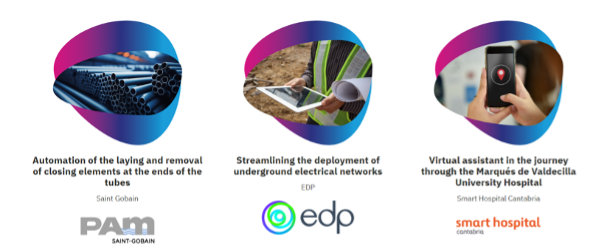Challenge-Driven Innovation: Paving the way forward in Cantabria

When it comes to regional innovation policies, a new concept gaining traction across European regions is that of challenge-driven policies. Despite their growing popularity, many regional initiatives are superficially labelled as missions.
This ‘mission washing’ trend involves adopting mission terminology without altering underlying policies, resulting in retrofitted initiatives within unchanged frameworks, ultimately diluting the essence of true missions. However, Cantabria, Spain, a partner in the Interreg Europe project CODIL, is changing that narrative by providing a bold example of a challenge-driven innovation policy through a mini-mission approach.
The Government of Cantabria and the Scientific and Technological Park of Cantabria have launched an ambitious new initiative: the Xtela project. This challenge-driven startup acceleration program connects business challenges from large companies in Cantabria, aligned with regional S3 priorities, to innovative solutions from startups.
Xtela builds upon Cantabria’s Innovation Strategy 2016-2030 and the Smart Specialisation Strategy 2021-2027, targeting sectors such as Industry 4.0, blue economy, bioeconomy, health and well-being, and sustainable cultural and tourism industries. Unlike many regional innovation policies, this initiative begins with a specific challenge. It represents a significant advance in the challenge-driven innovation approach, specifically designed to tackle concrete business challenges in Cantabria.
The eight-phase approach of Xtela
The Xtela project follows an eight-phase approach to foster collaboration between startups and large companies to solve specific business challenges:
-
Challenge publication: large companies define and publish challenges related to S3 priorities.
-
Solution submission: startups propose solutions through detailed online applications.
-
Application review: evaluations based on technical and resource feasibility.
-
Pre-selection: large companies shortlist the most promising solutions.
-
Pitch phase: startups present their proposals to potential corporate partners.
-
Matching phase: formal collaboration agreements are established, with a minimum project investment of €15,000 from the private companies.
-
Program development: startups are housed in the Xtela Tower for a six-month period, receiving access to mentorship, training, and networking opportunities to refine their solutions.
-
Demo day: final presentations showcasing project progress to investors and commercial partners.
The main challenges encountered when implementing the Xtela project were, on the one hand, defining the challenges or problems that the driving companies wanted to solve. On the other hand, choosing the company that best addressed the identified problems was very difficult due to the large number of proposals presented.
Comprehensive support for startups
Xtela goes beyond simply matching startups with large companies. It offers a comprehensive support system, including:
-
Dedicated mentors: experienced mentors guide startups in product development and strategy.
-
Expert training: workshops from industry experts on essential business skills and advanced technologies.
-
Networking opportunities: numerous events to connect with potential partners and investors.
-
Collaborative workspaces: access to the state-of-the-art Torre Xtela facility, designed to house innovative startups and companies.
Mini-mission approach
Xtela follows a mini-mission approach, utilising global knowledge to address local challenges within a short timeframe. Among the 25 challenges proposed in 2024, EDP, a large energy company, adopts this mini-mission approach by proposing a challenge to identify new technologies for capturing CO2 with seawater.

In the second edition of Xtela in 2024, 50 startups submitted a total of 122 applications to compete in 25 challenges presented by 12 companies in Cantabria. Among the participating startups, 12% are from the international ecosystem, specifically from Argentina, Brazil, Italy, the Czech Republic, and Singapore. Only 26% of the participating startups are from Cantabria.
This open mini-mission approach not only strengthens leadership, agile governance, and institutional capacities among policymakers but also ensures that all stakeholders—startups, large companies, and the broader community—benefit from a thriving innovation ecosystem.
Inspiring regional development
Xtela represents a dynamic approach to regional development, emphasising a challenge-driven methodology that bridges the gap between innovation and practical application. This approach could inspire other regions to design similar initiatives or improve their policy tools by collaborating with Cantabria, making the policy interregional for regions with similar S3 priorities.
By prioritising genuine, challenge-driven innovation, Cantabria is setting a powerful example for other regions, demonstrating that when policies are truly adapted to address local challenges, the benefits extend beyond economic growth to create a vibrant, collaborative innovation ecosystem. Lidia Peña concludes that Xtela is an excellent initiative to mobilise and attract startups and talents both from within and outside the region.
